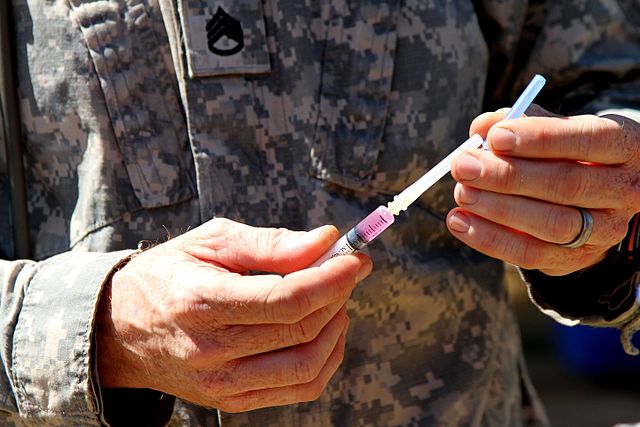If South Africa’s government-owned animal vaccine manufacturer, Onderstepoort Biological Products (OBP) keeps to its word, up to 90 000 doses of African Horse Sickness (AHS) will become available for injection at the end of October.
Back orders only
This quantity will cover back orders held by OBP. Horse owners attempting to source vaccines from their outlets without an order in place may therefore still face shortages.
This will go some way towards relieving the dearth of fresh vaccine required to prevent this often-fatal seasonal disease. It still falls far short of the volume required to immunise sufficient animals to achieve herd immunity throughout South Africa.
Two injections
To fully immunise a horse against all nine known strains of AHS requires two separate injections, administered about two weeks apart, each containing four or five strains of the nine.
Unhelpfully, there has been some confusion as to whether the current 90 000 doses are of only one vial of vaccine, or the full two-vial pack.
If the vaccine release of 90 000 doses is of only one vial, it will not enable 45 000 horses to be vaccinated at two doses per horse. Rather, it will immunise 90 000 horses, but only partially, against the four or five strains of AHS that the injection contains, and not the full spectrum of the disease.
National equid herd
Veterinary experts estimate that the national equine herd is some 320 000 animals. To achieve herd immunity, they calculate, will require full immunisation of 180 000. So assuming the vaccines to be released are the full-spectrum two-part packs, 90 000 doses is only 50% of what is required.
Manufacturing challenges
How has this situation arisen? For some years now there have been “challenges” at OBP, South Africa’s sole licensed manufacturer of certain animal vaccines, AHS among them. Lack of maintenance of existing equipment, obsolete machines, and even broken refrigerators have been cited as some of the problems that have bedevilled the manufacturing process of a number of vaccines affecting many livestock species – not only horses.
At the same time, turmoil at board level, and allegations of mismanagement have been swirling for some years.
New board of directors
The latest development in this regard is the recent appointment by agriculture minister Thoko Didiza of a fresh board of directors. However, critics say not one of the new board members is a specialist vaccinologist. There is, however, one veterinarian in the group, who is described by critics as “inexperienced.”
Vaccine imports
Unsuccessful attempts have been made to pressure the government into allowing the importation of critical vaccines from other suppliers internationally, or to allow other local manufacturers access to the formulae so that they can take up the slack.
Main image: Preparing an inoculation. Courtesy Wikimedia Commons

